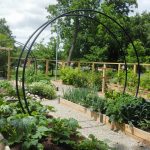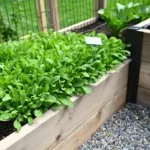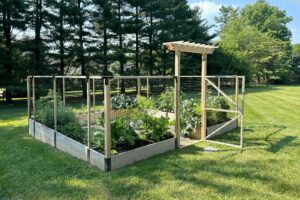
[et_pb_section fb_built=”1″ admin_label=”section” _builder_version=”4.16″ da_disable_devices=”off|off|off” global_colors_info=”{}” da_is_popup=”off” da_exit_intent=”off” da_has_close=”on” da_alt_close=”off” da_dark_close=”off” da_not_modal=”on” da_is_singular=”off” da_with_loader=”off” da_has_shadow=”on”][et_pb_row admin_label=”row” _builder_version=”4.16″ background_size=”initial” background_position=”top_left” background_repeat=”repeat” global_colors_info=”{}”][et_pb_column type=”4_4″ _builder_version=”4.16″ custom_padding=”|||” global_colors_info=”{}” custom_padding__hover=”|||”][et_pb_text _builder_version=”4.27.0″ _module_preset=”default” text_text_color=”#000000″ link_font=”|700|||on|||#000000|” link_text_color=”#000000″ header_2_line_height=”1.5em” hover_enabled=”0″ header_2_font_size_tablet=”” header_2_font_size_phone=”23px” header_2_font_size_last_edited=”on|phone” global_colors_info=”{}” sticky_enabled=”0″]
Introduction
When discussing fall garden maintenance tasks like summer garden clean-ups, crop rotation and soil care, one question we get asked is: should I fertilize my vegetable garden in fall? Not necessarily. This article will explore the right time to add fertilizer to your raised beds and why, along with alternative soil care methods.
[/et_pb_text][et_pb_text _builder_version=”4.27.0″ _module_preset=”default” text_text_color=”#000000″ link_font=”|700|||on|||#000000|” link_text_color=”#000000″ header_2_line_height=”1.5em” hover_enabled=”0″ header_2_font_size_tablet=”” header_2_font_size_phone=”23px” header_2_font_size_last_edited=”on|phone” global_colors_info=”{}” sticky_enabled=”0″]
Understanding Fall Garden Challenges
Typically in the Greater Philadelphia Area, our fall planting season ranges from mid-August to mid-September. The cooler weather and reduced pest pressure create an ideal environment for tender greens and herbs, but fall gardening also presents some challenges. Common fall gardening risks include a shorter growing season, reduced daylight, and frost risks. Therefore, our focus in fall is preserving plant health and ripening existing crops instead of encouraging new growth. This focus will help you get the most harvest and reward from your garden during a short growing season.
[/et_pb_text][et_pb_image src=”https://backyard-eats.com/wp-content/uploads/2023/09/DSC7789-scaled.jpg” title_text=”_DSC7789″ show_bottom_space=”off” _builder_version=”4.27.0″ _module_preset=”default” custom_margin=”20px||20px||true|false” hover_enabled=”0″ global_colors_info=”{}” sticky_enabled=”0″][/et_pb_image][et_pb_text _builder_version=”4.27.0″ _module_preset=”default” text_text_color=”#000000″ link_font=”|700|||on|||#000000|” link_text_color=”#000000″ header_2_line_height=”1.5em” hover_enabled=”0″ header_2_font_size_tablet=”” header_2_font_size_phone=”23px” header_2_font_size_last_edited=”on|phone” global_colors_info=”{}” sticky_enabled=”0″]
Fertilizing in Fall: When It’s Not Necessary
Because we want fall crops to focus on fruit ripening, we stop watering our gardens with organic fertilizer after fall planting. Fertilizers are typically high in nitrogen, which promotes vegetative plant growth. While vegetative growth can be helpful for certain crops in warmer weather, ultimately it’s counterproductive to fruit growth and ripening. Pausing fertilizer usage in fall signals that plants should shift their energy from expansion to ripening, leading to a quicker harvest. This especially applies to larger fruiting crops like tomatoes or peppers that have already begun to set fruit, and need to be harvested before a frost.
[/et_pb_text][et_pb_text _builder_version=”4.27.0″ _module_preset=”default” text_text_color=”#000000″ link_font=”|700|||on|||#000000|” link_text_color=”#000000″ header_2_line_height=”1.5em” hover_enabled=”0″ header_2_font_size_tablet=”” header_2_font_size_phone=”23px” header_2_font_size_last_edited=”on|phone” global_colors_info=”{}” sticky_enabled=”0″]
Alternatives to Fertilization During Fall
If you’re concerned about plant health without using fertilizer, here are some alternative ways to care for your fall garden during the growing season. First, maintain consistent soil moisture to help plants establish roots and prevent pest and disease issues from over-watering. We recommend drip irrigation systems for consistent, even, and regular watering at the roots without adding extra nutrients to the soil. As an added benefit, irrigation timers can be adjusted to a less frequent schedule as fall temperatures cool. Mulching – useful for in-ground beds – also helps retain soil moisture. Additionally, mulch can maintain a comfortable soil temperature which will reduce plant stress and encourage growth.
[/et_pb_text][et_pb_image src=”https://backyard-eats.com/wp-content/uploads/2024/06/6-1.jpg” title_text=”6″ show_bottom_space=”off” _builder_version=”4.27.0″ _module_preset=”default” custom_margin=”20px||20px||true|false” hover_enabled=”0″ global_colors_info=”{}” sticky_enabled=”0″][/et_pb_image][et_pb_text _builder_version=”4.27.0″ _module_preset=”default” text_text_color=”#000000″ link_font=”|700|||on|||#000000|” link_text_color=”#000000″ header_2_line_height=”1.5em” hover_enabled=”0″ header_2_font_size_tablet=”” header_2_font_size_phone=”23px” header_2_font_size_last_edited=”on|phone” global_colors_info=”{}” sticky_enabled=”0″]
Post-Harvest Care: Adding Nutrients Back to the Soil
Because we don’t fertilize fall gardens, we add nutrients back to the soil during end-of-season care in November or December instead. End-of-season care is essential to soil health and the success of your garden next spring. After fall harvests, we add a layer of compost to our raised beds. Compost is a thick mixture of organic matter that’s rich in nutrients (including nitrogen). Compost will help retain moisture and suppress weeds in your raised beds over winter, lessening the preparation required to revive your garden for spring planting.
[/et_pb_text][et_pb_text _builder_version=”4.27.0″ _module_preset=”default” text_text_color=”#000000″ link_font=”|700|||on|||#000000|” link_text_color=”#000000″ header_2_line_height=”1.5em” hover_enabled=”0″ header_2_font_size_tablet=”” header_2_font_size_phone=”23px” header_2_font_size_last_edited=”on|phone” global_colors_info=”{}” sticky_enabled=”0″]
Subscribe to Our Newsletter
For more expert edible gardening advice and inspiration, don’t forget to subscribe to our weekly newsletter!
[/et_pb_text][et_pb_button button_url=”@ET-DC@eyJkeW5hbWljIjp0cnVlLCJjb250ZW50IjoicG9zdF9saW5rX3VybF9wYWdlIiwic2V0dGluZ3MiOnsicG9zdF9pZCI6IjU4MjY0In19@” url_new_window=”on” button_text=”BOOK A CONSULTATION” button_alignment=”left” button_alignment_tablet=”left” button_alignment_phone=”left” button_alignment_last_edited=”on|tablet” disabled_on=”off|off|off” _builder_version=”4.27.0″ _dynamic_attributes=”button_url” _module_preset=”737bea5a-e063-4b24-af3f-21ce28f0bf38″ button_bg_color=”gcid-3b5ac83a-684c-4379-a559-60b2aa9e8157″ button_border_color=”gcid-3b5ac83a-684c-4379-a559-60b2aa9e8157″ button_letter_spacing=”1px” button_font=”Roboto|700||on|||||” z_index=”90″ custom_margin=”0px|0px|30px|0px|false|false” custom_margin_tablet=”0px|0px|0px|0px|false|false” custom_margin_phone=”0px|0px|0px|0px|false|false” custom_margin_last_edited=”on|desktop” locked=”off” global_colors_info=”{%22gcid-3b5ac83a-684c-4379-a559-60b2aa9e8157%22:%91%22button_border_color__hover%22,%22button_bg_color%22,%22button_border_color%22%93}” button_text_color__hover_enabled=”on|hover” button_text_color__hover=”#844B67″ button_bg_enable_color__hover=”on” button_border_color__hover=”#88667b” button_border_color__hover_enabled=”on|desktop”][/et_pb_button][/et_pb_column][/et_pb_row][/et_pb_section]






